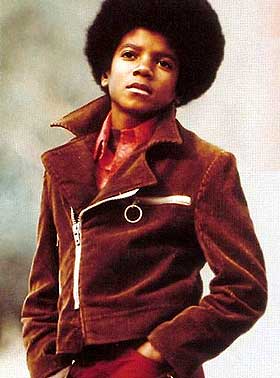The first remarkable episode of global celebrity adoration, as we know it today, comes to us courtesy of the silent film era and Rudolph Valentino, a.k.a The Sheik. (While prodigious talents like Mozart, Michelangelo, and Charles Dickens enjoyed recognition in their lifetimes, twentieth-century inventions like radio, film and television revolutionized the meaning of fame, culminating in the modern phenomenon of super stardom.) When the Italian Hollywood star died in 1926, fans wept, women fainted, and more than 100,000 people marched in his New York funeral. 83 years after his death, his name remains a moniker for the swashbuckling ladies man meets the hopeless romantic.
The first entertainer to uncork a cult-like fan craze of the sort later enjoyed by the Beatles and Michael Jackson was Elvis Presley. Elvis epitomized the vivacious, youthful spirit of his times, becoming a globally recognized icon of, not just American art and entertainment, but of America itself. His burial grounds at Graceland remain one of the most visited anywhere in the nation, and Elvis himself has become the most impersonated figure in history.
The notion of superstardom is not limited to the US or the West. When legendary Egyptian singer and Arab icon, Umm Kulthum, died in 1976, her funeral became the most attended in modern recorded history, with over four million mourners crowding Cairo's streets. Though a classical singer, "the lady," as she was dubbed by French president Charles De Gaul, had left an indelible mark on the social, cultural, and political consciousness of the Middle East and the Arab world. To this day, she is known affectionately as Egypt's fourth pyramid.

So where does Michael Jackson's legacy fit in?
Quirky tabloid life aside, Michael is widely regarded as the supernova of superstardom.
No entertainer in history has offered as much excitement and enjoyment to as many fans around the world as Michael has for as long as he has; it is likely that no one ever will.
Despite the wealth of competition in a world in which millions dance and sing, he danced and sang better than anyone in the world.
As a starry-eyed child from Gary, Indiana he stunned audiences with his soaring voice, crooning ballads, and composure beyond his years. As an adult, he excited millions with a never-before-seen brand of electrifying entertainment that combined pulsating energy and studied suave.
His trademark infectious beats and moves left him in an uncontested league of his own, much like Pele in soccer and Michael Jordan in basketball.
No entertainer has left the music world with as many popular singles that defined the essence of their times as he has. His album Thriller was the most commercially and critically successful non-anthological album in history, and is expected to remain that way in the future.
Michael Jackson's fan base extends from Morocco to Japan, and from Iceland to Australia. Though it has dimmed in recent years due to a series of bizarre lifestyle choices, most notable of which is a metamorphous plastic face, his gargantuan talent and musical body of work will likely prove enough to secure him a glowing post-mortem legacy.
As I watch the ongoing TV coverage of reactions to Michael's death that pour in from celebrities, politicians, and average people on the street, I am reminded of the same display of emotion shown for Elvis, John Lennon, and Umm Kulthum. This leaves me wondering, what is it about entertainers that so captivates the emotions of people and commands a broad outpouring of love seldom offered to others.
After all, one would think that mass adoration of the highest order would be better reserved for the liberator of the free world, the discoverer of a cure for cancer, or the inventor of a bank that systematically alleviates poverty.
But it is not, it is almost always reserved for entertainers.
The secret to this conundrum lies not in those entertainers, but in us and our narcissist tendencies. Our love for them is but a reflection of how deeply we cherish our personal memories, fleeting moments that we value more than mounds of gold, moments played against a soundtrack provided by those we then grow to love.
Sure, you may love Shakespeare or Hemingway, and you may appreciate your elected officials. But it is highly unlikely that your favorite author or elected official will occupy the same space in your sentimental bank of memories as the folks who provided the score for those special times in your childhood, adolescence, youth, etc. Naturally, love is a sentimental affair.
Ironically, he did not benefit as greatly from what we offered him in turn. Michael's personal life was defined by a constant struggle to cope with a larger-than-life fame that burdened him to his core, causing him deep pain, sadness, and solitude. Robbed of his childhood, the eternal boy could never fully come to terms with his manhood, unleashing the odd behavior that only earned him more public scorn, perpetuating the cycle of pain. No one explains it better than Juan Cole whose thoughtful tribute to Michael I highly recommend.